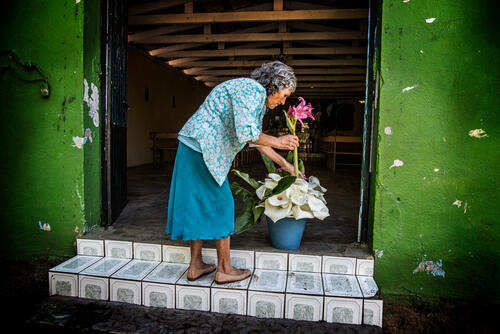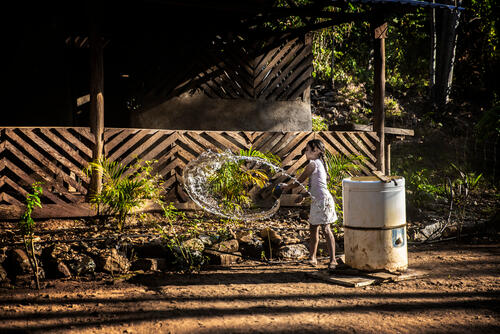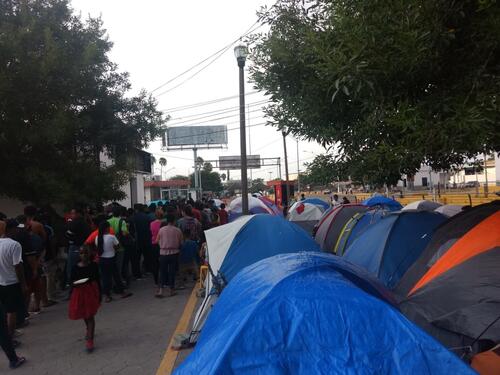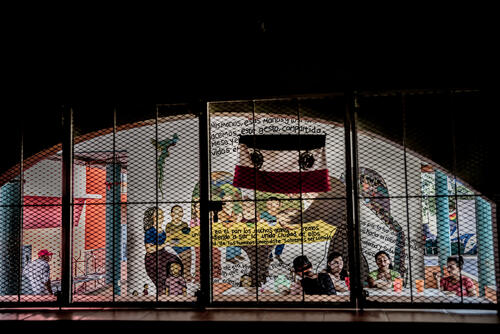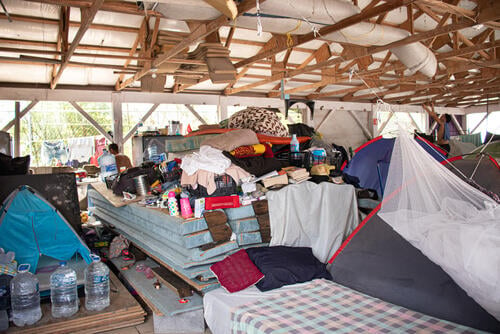They are strong, the women of Guerrero, one of Mexico’s most violent states, fought over by myriad criminal gangs, self-defence groups, police and military authorities. Many rural communities have been isolated by the violence.
Médecins Sans Frontières (MSF) teams are running a mobile clinic in the region, providing medical and mental healthcare. We spoke with women, individually and in groups, from the Sierra Madre, a mountain range that runs through the state, whose villages have been cut off for months, as a result of the rivalry between armed groups.
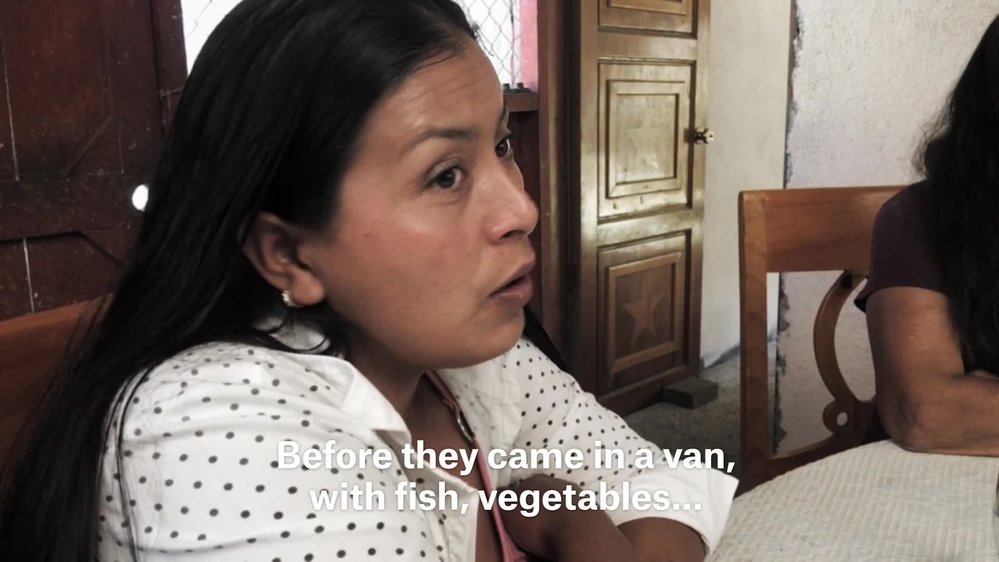
The strong women of Guerrero
Gabriela
Gabriela is from a village visited by a MSF mobile clinic. She is barely 20 years old and has two children. She was pregnant with her second when her husband was killed. Now, with a baby just a couple of weeks old in her arms, she prefers not to give her real name and to keep her face hidden. She fears reprisals because tensions are still high in the area.
“I was in the car with my husband, his cousins and one of their wives. We were driving down the mountain, on our way to a nearby city, when armed men in vans forced us to stop. They made the four men get out of the car and took them away.”
“A man passing by later on a motorcycle helped us, the women, by taking us to the city, where we went to the police. The men were missing for five days. They found them later, by the side of the road, dead and buried.”
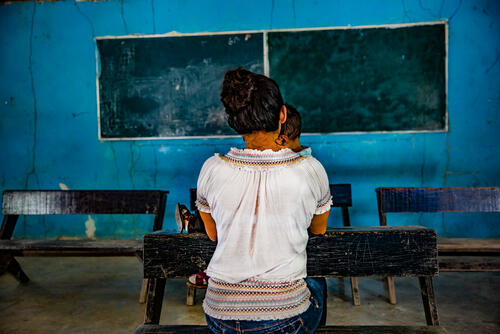
“I thought our husbands were going to come back, that it had all been a mistake and that they would return them. They were men who kept to themselves, working in the fields. When I found out my husband was dead, I went to live with my parents. I gave birth away from here with their help.”
“I want to get out of here, to get away from this place where there is so much violence. I’ve thought of setting up a business, I’ve even thought of becoming a missionary, but I have small children. All my memories are here; of my childhood, my family, my husband.”
“The men were young, between 17 and 26 years old; they had their whole lives ahead of them. We do not know what is going to happen to us next. Attacks on women and children? My eldest child, he’s two years old; he stopped eating, stopped walking; whenever a blue van drives by, he goes towards it, thinking it is his dad’s van.”
“We’ve spent six months without electricity after the armed group cut off the supply, unable to move, without access to medicines, unable to send our children to school. There are many innocent families living here.”
Ana
Sixty-year-old Ana has seen many of her neighbours flee, no longer able to live amid the violence.
“We feel desolate, unable to work in peace because of fear. We cannot go to the fields like we did before to see how the cows are doing and to help them give birth, for example. Now we keep the pregnant ones in a nearby enclosure. Before, with a pregnant cow, I would go to the fields all the time, whenever I felt like it, to keep an eye on her.”
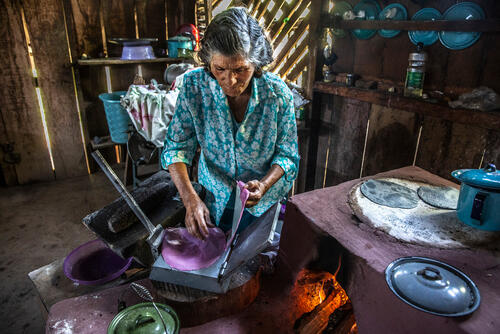
“Yesterday, a family left. They will sell their cows at any price and say goodbye; who knows if they will return? The teachers have not come back yet; we had a kindergarten, a primary and secondary school. Now, there’s nothing. How long are we going to be like this? We don’t know. Until one of the two rival groups loses, I guess. We want a future for our children, for our grandchildren.”
Two of the now empty classrooms of the school have been turned into an improvised campsite for the MSF teams that began their visits to the town in November.
Ana María
In another community, higher in the Sierra Madre mountains, the eldest people in the area remember when the town was founded.
“When I arrived as a child, there were four houses,” says Ana María, now in her seventies.
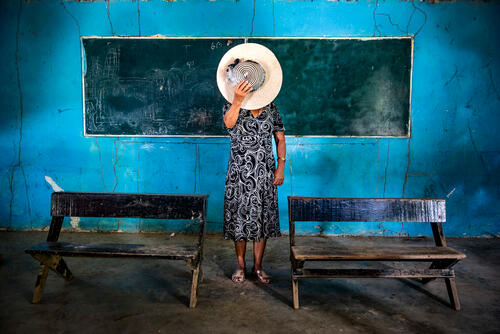
Don Gabino, her husband, explains that the area was originally settled by people from the neighbouring state of Michoacán who fled during the Cristero War of 1926-29. The Sierra Madre provided them with fertile land to grow corn, beans, pumpkins, potatoes, and more. But then the crops stopped being exclusively for food and people began to grow other, more profitable crops, such as marijuana and poppies, which first brought wealth, then violence. Ana María was the village midwife.
“I have delivered 35 children. But I haven’t helped with a birth for four years now. And as we don’t have a doctor, now we use traditional cures. Pregnant women that are about to give birth or that have a problem go down to the city, but they’re very scared.”
Elvira
Elvira came to the town 20 years ago.
“When a group of armed men attacked the town, we stayed at home, we didn’t go out. We survived on what we had, on the food we’d grown. Many people have left out of fear or because they’ve been involved in the violence. It's scary, especially for the children, because they can get hurt.”
Like other women, she accompanies her husband when he goes to the fields to work. “You feel that going with them protects them somehow.”
The villagers are forced to wait to be escorted by the army down to the city to get provisions or money; no merchants visit to sell their products, nor daily laborers to work. They are trapped, unable to sell their avocados unless they risk their lives taking them to the market.
Melania
“We are trying to recover some normality. Thanks to solar panels, we now have enough electricity to access the internet, some small stores have reopened and we’re starting to leave the house,” says Melania. “But I remember that at the beginning, when MSF arrived for the first time, I felt that they were coming to rescue us. The MSF psychologists and doctors made us feel very supported; we felt some relief.”
The women have made a list of things they would like for the area: schools reopened, roads repaired, support for job creation, and that Guerrero stops being the place that people have to leave to find work in other parts of Mexico or the United States.
Carmen
“It's scary for the children, who are just starting their lives, to have to live such a life. You ask yourself why your children have to live this life, why you have to live this life. We haven’t killed anyone, we haven’t stolen anything, we haven’t taken anything from anyone, but we live with that question and with fear for our children,” says Carmen to a group of other women in her community.
“Our roots are here, and we don’t want to leave our land. We have hopes and we know how to work the fields; we love the fields. That is why we want to fight for peace, so that our young people do not leave for other countries, because there aren’t any jobs here.”
But first, there’s a more pressing need, says Carmen: “Above all, peace. We need to know that they will not come to attack the town again.”
The MSF mobile clinic has been visiting the town regularly since it was cut-off by the fighting six months ago. The return to a degree of normality and the work of doctors and psychologists has strengthened the community. The creation of a neighbourhood health committee will ensure the work continues even as the mobile clinic moves on to other places with more urgent needs.



